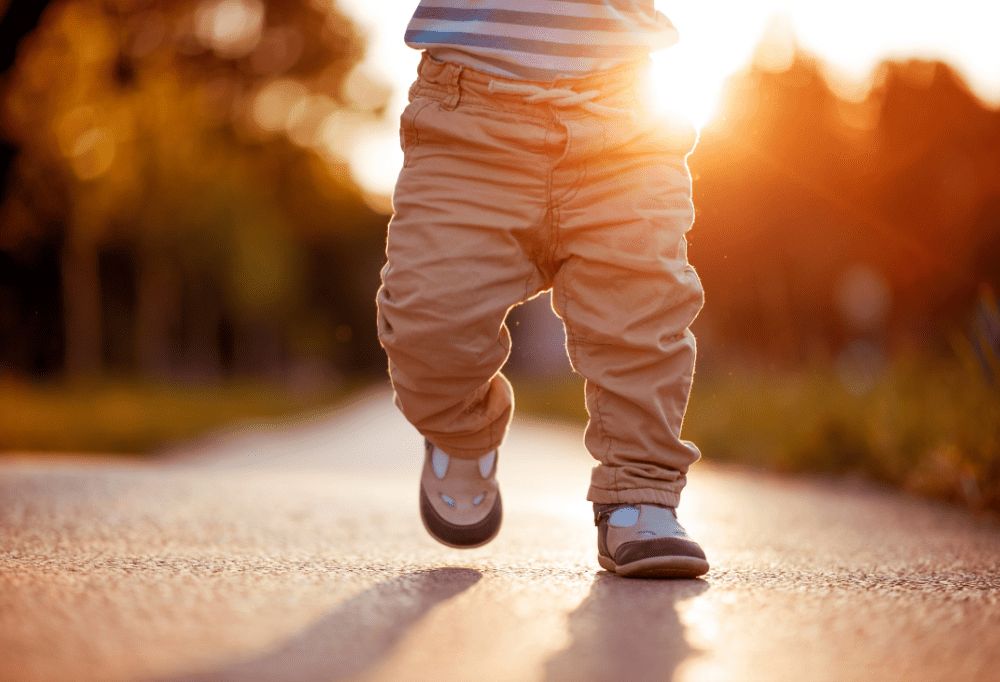Hooray, you’re expecting (again)! While you may feel like a pro this time around when it comes to the ins and outs of pregnancy and childbirth, there are still a whole host of things that will feel like foreign territory. Namely, the behaviors and feelings of your beloved firstborn — especially if they are a toddler or preschooler, making the concept that much more challenging for them to grasp.
The questions can seem endless: How will the child react? Will they act out in jealousy or regress developmentally? How will you manage a rambunctious, inquisitive youngster while navigating the day-to-day of caring for a newborn? The good news (you’re welcome!) is that there are a few things you can do to make the process go just a bit smoother for you and your family before the arrival of your new bundle of joy.
Be honest and talk to your child about the baby.
Communicate the impending change to the family dynamic as simply and as honestly as possible. While your child may not understand what it means to have a new brother or sister, openly discuss “Mama’s growing belly” and share in the excitement of getting to have “a new baby.” Refer to the new baby by name to help your child get acquainted, and normalize the process by pointing out children with younger brothers or sisters of their own. Your excitement and positive attitude about the new addition will likely rub off on your older child. Younger children also may not be able to grasp the concept of time, so stress that the baby’s arrival won’t be until the summer when the weather is warm or near Halloween. When that time comes, talk to your child about when you will go to the hospital and return with the new baby.
Utilize pictures and children’s books.
Bring out your child’s baby book or photos so they can see you when you were previously pregnant with them, as well as baby photos of your child to help them understand. There are also several books for kiddos of all ages that can help them grasp the concept of a new baby and what it means to become a big brother or sister.
Involve your child in the planning of the new baby.
Preschoolers love to learn and explore, and making them a part of the planning and prep process can help ease any jealousy that may arise later. Let them pick out a baby outfit, ask their opinion or have them help get the nursery ready. Allow your child to play with their old toys before passing them along to the new baby. You may also consider buying your child a toy babydoll of their own to care for and help them practice being gentle with the baby.
Take care when changing your child’s routine.
Getting a new sibling is a major life change in itself, so provide your son or daughter with adequate time to learn or adjust to any major changes or new milestones before the baby comes, such as potty training or transitioning from a crib or a toddler bed. Or wait until the new baby is settled before introducing any new concepts. Otherwise, your child may feel overwhelmed by the many changes taking place at one time. Also, have your partner or any caregivers carve out special time with your child prior to the baby’s arrival so your child can get used to spending a little extra time with that person while you are feeding and caring for your newborn.
Prepare for your child to regress a little.
After the baby comes, your potty-trained angel may start having more “accidents,” increase their whining or exhibit their own baby-like behavior. The truth is that your child is adjusting to having to share your love and attention. Your best bet is to be as understanding and patient as possible, as your child will adjust to the new dynamic, though it may take a few months.
Set aside special one-on-one time with your child.
Be sure to read, play games or just enjoy some uninterrupted snuggle time with your little one both before and after the baby comes to make them feel special. Consider giving the child a special “gift” from the baby or going to a favorite place to celebrate the baby’s arrival once everyone is home and settled from the hospital.
In addition to these tips, Baptist Health offers a sibling class for parents and their children aged 3 to 7 to help with preparation. While every child is different, they all have an adjustment period when it comes to getting a new sibling. Remember to practice patience and empathy with your child while you wait for them to become best buddies!


